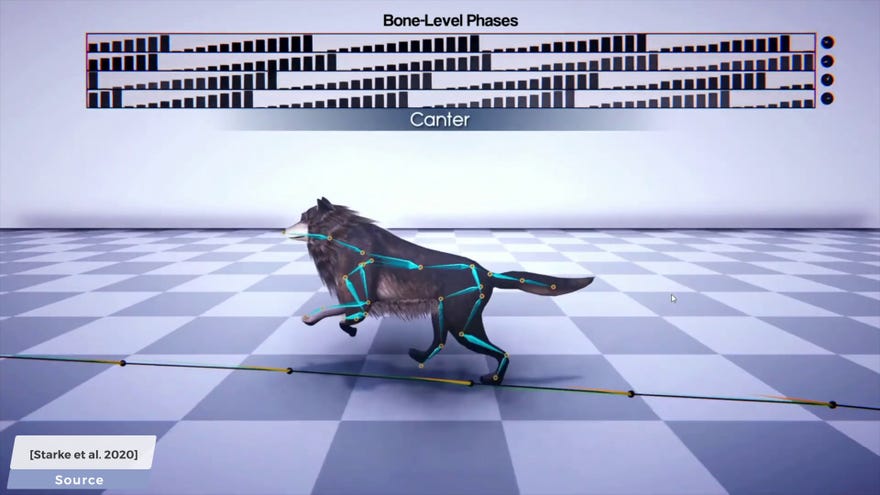I love this man's enthusiasm for an innovative AI mocap technique
Who's a good AI, you are, you are
I like neat AI stuff. The prospect of making machines autonomously clever (whatever that means) is a fundamentally exciting concept to me, even though there are plenty of ways in which AI is being and will be used to make people's lives worse. I'm therefore a prime target for Two Minute Papers, a YouTube channel that takes interesting research papers and presents them with hyper-infectious enthusiasm.
One of their latest vids is about an AI someone's managed to trick into being really good at generating realistic basketball movements from a tiny amount of data. I don't understand how, but I don't particularly want or need to. This man just wrapped up his vid by whooping "what a time to be alive", and you know what? It is.
Like I say, the actual tech is still mostly a mystery to me. I believe this has *implications*, meaning it may well become easier for small development teams to generate impressively believable animations without much work. I'll let Dr Károly Zsolnai-Fehér take it from here.
The most interesting parts come towards the end, where he demonstrates how the AI can do a good job of modelling yer digi-bloke shooting even though it only looked at seven minutes of mo-capped footage for that particular action. A key point is that while other algorithms can handle "edge cases", they need to be trained on huge amounts of data. So this is a massive increase in efficiency, and as mentioned, should be fairly generalisable. They swap to a snazzy looking dog towards the end, and I can confirm "that good boy IS pacing and running around beautifully".
Honestly, my day has been brightened just from watching that - even if this somehow amounts to nothing.
You can check out the full paper here, published by Sebastian Starke, Yiwei Zhao, Taku Komura and Kazi Zaman at the University of Edinburgh in the School of Informatics.
I haven't had a chance to poke around much else on the channel, but here's an intriguing one about the arms race between AI deep fakes and AI deep fake detectors.


